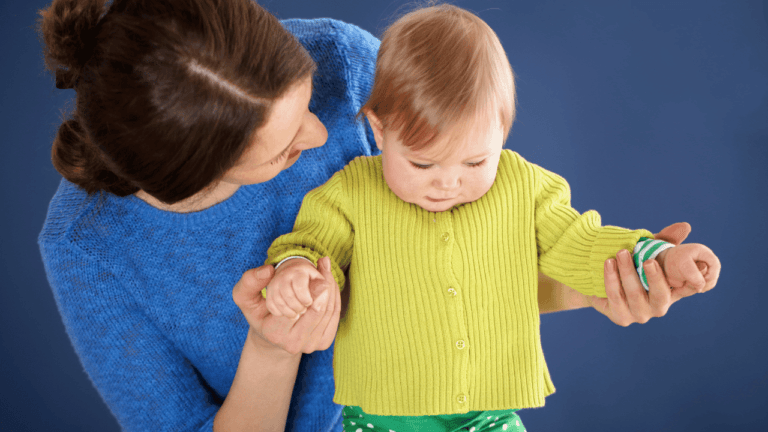
Discipline and Punish Summary: Effective Strategies
In the journey of parenting, one often comes across the question of discipline and punish summary. It is essential to understand the key differences between these approaches and explore effective strategies for positive behavior management. By adopting the right discipline techniques and behavior modification techniques, parents can nurture a healthy and supportive environment for their children.
Key Takeaways:
- Discipline focuses on teaching children new skills and guiding them to make better choices.
- Punishment, on the other hand, aims to make a child suffer for breaking the rules.
- Effective discipline strategies involve setting clear rules, consistent consequences, and positive reinforcement.
- Punishment can have negative effects on a child’s self-perception, behavior, and emotional well-being.
- Positive discipline techniques empower children with self-control and self-regulation skills for behavior change.
Understanding the Impact of Punishment
Punishment can have a detrimental effect on a child’s self-perception and behavior. When a child experiences punishment, they may internalize the belief that they are innately bad, rather than understanding that they made a mistake. Punishment often involves inflicting physical pain or suffering, which can lead to negative emotional and cognitive outcomes. It fails to effectively teach children how to behave or resolve conflicts in a peaceful manner. Instead, it can generate fear, anger, and a desire for revenge. Punishment does not equip children with the skills and tools they need to manage their behavior and make better choices in the future.
“Punishment often focuses on inflicting physical pain and suffering”
“Punishment can create fear, anger, and a desire for revenge”
“Punishment fails to teach children how to resolve conflicts peacefully”
“Punishment does not provide children with the necessary skills for behavior modification”
| Negative Consequences of Punishment | Impact on Child |
|---|---|
| Anxiety and Fear | Generates emotional distress, leading to reduced self-confidence and increased anxiety. |
| Revenge and Resentment | Creates a desire for retaliation, hindering positive relationships and promoting negative behaviors. |
| Aggression | Can escalate aggression in children as they learn that violence is an acceptable solution. |
| Low Self-Esteem | Causes children to view themselves as inherently bad, impacting their self-worth and self-perception. |
| Chronic Stress | Elevates stress hormone levels, leading to various physical and mental health issues. |
In contrast to punishment, positive discipline techniques focus on behavior modification and equipping children with the necessary skills for self-regulation and making better choices. By adopting an approach that prioritizes understanding and teaching, parents can foster a positive, nurturing environment that promotes healthy behavior management and strengthens the parent-child relationship.
The Benefits of Discipline
Discipline plays a crucial role in shaping children’s behavior, promoting healthy development, and fostering positive relationships between parents and children. By implementing effective discipline strategies, parents can guide their children towards self-control, problem-solving, and emotional regulation. Let’s explore the various benefits of discipline and how it can positively impact a child’s growth.
Behavior Management and Problem-Solving
Discipline provides children with a structured framework for managing their behavior and making appropriate choices. Through strategies like time-out and the removal of privileges, children learn that their actions have consequences, both positive and negative. These clear and consistent consequences help children understand the importance of adhering to rules and encourage them to think critically about their actions. By fostering problem-solving skills, discipline equips children with the ability to navigate challenges and conflicts effectively.
Emotional Regulation and Positive Reinforcement
One of the significant advantages of discipline is its emphasis on emotional regulation. Through discipline techniques, children learn to identify and manage their emotions in a healthy and constructive manner. By setting clear expectations and utilizing positive reinforcement techniques, such as praise and reward systems, parents can promote positive behavior and motivate children to follow the rules. This approach cultivates emotional intelligence, resilience, and self-esteem.
“Positive reinforcement is an essential aspect of discipline. It encourages repeat behavior, strengthens the parent-child bond, and fosters a sense of achievement and self-worth in children. When used effectively, positive reinforcement can shape children’s behavior in lasting and meaningful ways.”
An Authoritative Approach
Discipline embraces an authoritative parenting approach, which combines warmth, guidance, and clear boundaries. By setting reasonable expectations and consistently enforcing rules, parents establish a secure and predictable environment. This authoritative approach creates a sense of structure, stability, and safety for children, enabling them to develop trust, respect, and self-discipline.
The image above illustrates the positive outcomes of effective discipline techniques, emphasizing behavior management, problem-solving skills, emotional regulation, and positive reinforcement.
Overall, discipline is an essential tool in raising well-rounded individuals. It promotes positive behavior management, nurtures problem-solving skills and emotional intelligence, and strengthens the parent-child bond. By embracing a discipline-oriented approach, parents can guide their children towards healthy development and lifelong success.
The Harmful Effects of Fear-based Punishment
Fear-based punishment can have a detrimental impact on a child’s brain development and mental health. The use of punitive measures rooted in fear can lead to long-lasting negative consequences for children.
When children experience fear-based punishment, their brains undergo significant changes that can impair their cognitive and emotional functioning. The chronic elevation of stress hormones, such as cortisol, in response to fear can have a negative impact on brain development. Research indicates that prolonged exposure to stress hormones can lead to brain shrinkage, particularly in areas responsible for memory and learning.
This detrimental impact on brain development may manifest as difficulties in memory retention, problem-solving, and overall cognitive functioning. It can also compromise the child’s ability to regulate emotions effectively, which can result in emotion dysregulation and impulsive aggressive behavior.
“The chronic elevation of stress hormones caused by fear can lead to brain shrinkage, memory and learning difficulties, suppressed immune system, hypertension, and mental disorders such as depression, anxiety, and posttraumatic stress disorder (PTSD).”
Additionally, fear-based punishment has been linked to an increased risk of mental disorders such as depression, anxiety, and posttraumatic stress disorder (PTSD) in children. The constant state of fear and stress can disrupt the development of healthy emotional regulation, leaving children vulnerable to the onset of these mental health challenges.
Furthermore, fear-based punishment can create a bidirectional influence between a child’s externalizing behaviors and punitive reactions from parents. Externalizing behaviors, such as aggression and defiance, often arise as a result of emotional dysregulation caused by fear-based punishment. In turn, parents may respond to these behaviors with even more punitive measures, intensifying the child’s externalizing behaviors.
This bidirectional influence can create a harmful cycle of escalating punishment, leading to abusive levels of discipline and further exacerbating the negative impact on the child’s mental health and behavior.
It is crucial for parents and caregivers to recognize the potential harmful effects of fear-based punishment and seek alternative, positive discipline strategies that prioritize the child’s well-being and healthy development.
The Power of Positive Discipline
Positive discipline is a powerful approach to teaching children new behaviors and guiding them in correcting their misbehavior. It goes beyond punishment and focuses on providing corrective consequences that help children learn from their mistakes.
Corrective consequences in positive discipline include both natural consequences and logical consequences. Natural consequences allow children to experience the natural results of their actions without intervention from adults. For example, if a child refuses to eat their dinner, the natural consequence would be hunger. This helps children understand the connection between their actions and the consequences that follow.
Logical consequences, on the other hand, are consequences that are logically related to the misbehavior. They are designed to teach children about responsibility, problem-solving, and appropriate behavior. For instance, if a child consistently forgets to complete their homework, a logical consequence could be losing a privilege, such as screen time, until the homework is completed.
Positive discipline empowers children by teaching them self-control and self-regulation. Instead of relying on external control or punishments, positive discipline equips children with the skills and tools they need to manage their own behavior. It fosters the development of self-discipline and promotes long-term behavior change.
By using positive discipline techniques, parents can create a nurturing and supportive environment for their children. This approach not only helps children develop self-control, but it also strengthens the parent-child relationship. Children feel understood, respected, and loved, which promotes a sense of security and trust.
Benefits of Positive Discipline
Positive discipline offers numerous benefits, including:
- Teaching children important life skills such as problem-solving, decision-making, and conflict resolution.
- Enhancing self-esteem and self-confidence by focusing on positive reinforcement and recognizing children’s efforts and progress.
- Improving communication and fostering positive relationships between parents and children.
- Encouraging intrinsic motivation and a sense of responsibility.
- Promoting empathy, compassion, and respect for others.
- Reducing power struggles and negative behaviors.
Implementing Positive Discipline
To implement positive discipline effectively, parents can follow these strategies:
- Establish clear expectations and rules.
- Use positive language and avoid negative labels.
- Model appropriate behavior and problem-solving skills.
- Be consistent with consequences and rewards.
- Ensure consequences are related to the misbehavior and provide opportunities for learning.
- Encourage open communication and active listening.
- Involve children in decision-making and problem-solving processes.
- Provide support and guidance when needed.
By implementing positive discipline techniques, parents can create a loving and supportive environment that promotes behavior change, self-control, and self-regulation. This approach sets children up for success in both their personal and social development.
| Positive Discipline Techniques | Benefits |
|---|---|
| Using natural consequences | Allows children to learn from the natural results of their actions. |
| Implementing logical consequences | Teaches children responsibility and helps them understand the connection between actions and consequences. |
| Providing positive reinforcement | Boosts self-esteem, enhances motivation, and encourages positive behavior. |
| Encouraging problem-solving | Teaches children how to find solutions and make responsible decisions. |
| Promoting open communication | Builds trust, strengthens the parent-child relationship, and fosters understanding. |
Implementing Effective Discipline Strategies
Implementing effective discipline strategies is crucial for shaping children’s behavior, fostering character development, safeguarding their mental health, and building strong, meaningful relationships. By employing these strategies, parents can create an environment that promotes positive behavior management, instills valuable life skills, and encourages overall well-being.
To establish effective discipline strategies, it is important to set clear expectations and consequences. When children clearly understand the rules and the potential outcomes of their behavior, they are more likely to make better choices. This clarity provides a solid foundation for behavior modification and character development.
Behavior modification techniques play a significant role in discipline strategies. These techniques involve teaching children problem-solving and emotional regulation skills, which helps them manage their behavior independently. By equipping children with these essential life skills, parents empower them to navigate challenges and make positive choices on their own.
Unlike punishment-focused approaches, effective discipline strategies prioritize teaching children how to manage their behavior rather than relying on punitive measures. By focusing on behavior modification, parents can guide children towards positive behavior change, promoting self-control and self-regulation.
Implementing effective discipline strategies also has profound effects on children’s mental health. By promoting positive self-esteem, reducing power struggles, and fostering healthy relationships between parents and children, these strategies contribute to overall mental well-being.
Moreover, effective discipline strategies have been found to enhance academic achievement. When children feel supported, respected, and guided through positive discipline techniques, they are more likely to be motivated, engaged, and successful in their academic pursuits.
Key Benefits of Implementing Effective Discipline Strategies:
- Promotes positive behavior management
- Fosters character development
- Protects mental health
- Builds strong parent-child relationships
- Enhances academic achievement
To illustrate the impact of effective discipline strategies, consider the following quote:
“Effective discipline not only shapes a child’s behavior but also lays the foundation for their future success. By teaching them vital skills, promoting positive self-worth, and building a nurturing relationship, parents provide their children with the tools they need to thrive.”
Implementing effective discipline strategies is a proactive approach that nurtures children’s growth, development, and well-being. By focusing on behavior modification, character development, mental health protection, and relationship building, parents create an environment that supports their children’s positive development and sets them up for success.
Conclusion
Discipline and punishment are two distinct approaches in parenting. While punishment focuses on stopping undesirable behavior through negative consequences, discipline takes a different approach, aiming to teach children new behaviors and help them correct their misbehavior. Effective discipline strategies involve modifying behavior, fostering character development, protecting mental health, and building a strong parent-child relationship.
By implementing positive discipline techniques and consistently applying consequences, parents can effectively manage their children’s behavior. Positive discipline promotes behavior management in a constructive manner and empowers children to make better choices. It also creates a nurturing and supportive environment for children to learn and grow.
Parents who employ effective discipline strategies are able to guide their children, teaching them essential life skills such as problem-solving and emotional regulation. Positive behavior management is achieved through the use of clear expectations, consistent consequences, and behavior modification techniques. Furthermore, effective discipline approaches strengthen the parent-child relationship, fostering trust, open communication, and mutual respect.
Frequently Asked Questions
What is the difference between discipline and punishment in parenting?
Discipline focuses on teaching children new behaviors and helping them correct their misbehavior, while punishment aims to make a child suffer for breaking the rules. Discipline is about teaching children how to make better choices, while punishment is about control.
What are the negative effects of punishment on a child?
Punishment can have negative effects on a child’s self-perception and behavior. It can lead to feelings of being inherently bad, fear, anger, and a desire for revenge. Punishment does not effectively teach children how to behave or resolve conflicts peacefully.
What are the benefits of discipline in parenting?
Discipline focuses on teaching children new skills, such as behavior management, problem-solving, and emotional regulation. It uses positive reinforcement and fosters positive relationships between parents and children. Discipline helps children learn from their mistakes and actively develop their behavior.
What are the harmful effects of fear-based punishment?
Fear-based punishment can have harmful effects on a child’s brain development and mental health. It can lead to brain shrinkage, memory and learning difficulties, suppressed immune system, hypertension, and mental disorders such as depression, anxiety, and PTSD. It can also disrupt emotional regulation and escalate to abusive levels of punishment.
What is positive discipline and how does it work?
Positive discipline focuses on teaching children new behaviors and helping them correct their misbehavior. It uses corrective consequences, such as natural consequences and logical consequences, to guide children in learning from their mistakes. Positive discipline empowers children to take control of their behavior through self-control and self-regulation.
How can I implement effective discipline strategies in parenting?
implementing effective discipline strategies involves modifying children’s behavior, developing their character, protecting their mental health, and building a strong parent-child relationship. It requires setting clear expectations and consequences, using behavior modification techniques, and teaching problem-solving and emotional regulation skills.
What is the importance of effective discipline strategies in parenting?
Effective discipline strategies promote positive behavior management, reduce power struggles, improve relationships between parents and children, and enhance academic achievement. They teach children how to make better choices and manage their behavior, creating a nurturing and supportive parenting approach.















